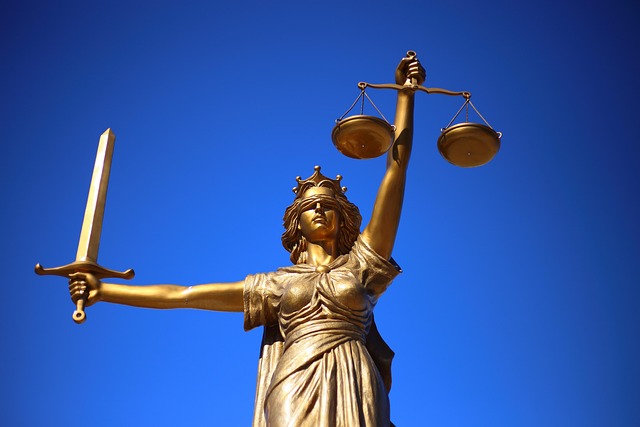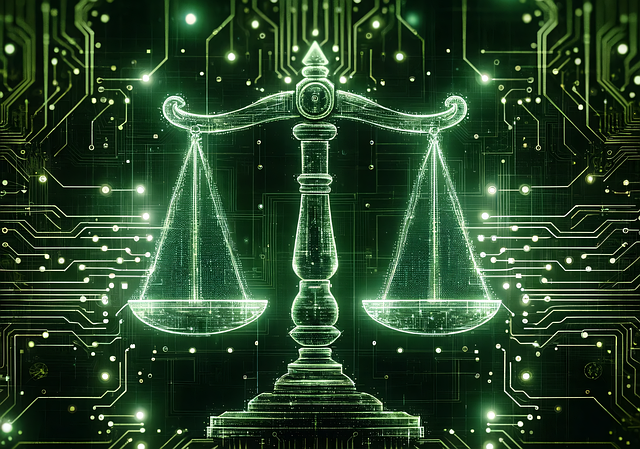Environmental crime trials are crucial for upholding environmental laws and protecting public welfare by holding individuals and organizations accountable for ecological harm. These trials tackle complex issues, including workplace rights violations like exposure to hazardous substances and unfair compensation practices, which often have severe environmental consequences. Evidence such as polluted samples and expert testimonies prove guilt. International laws, like those facilitated by UNEP, establish universal standards and judicial frameworks. Successful prosecutions drive change, leading to industry reforms and positive environmental impacts, while promoting transparency and accountability globally.
Environmental Crime Trials shine a light on criminal activities harmful to our planet, from pollution to habitat destruction. This article delves into this critical legal arena from multiple angles. We explore understanding these trials through a legal perspective, unravel common scenarios of workplace rights violations, and analyze the power of evidence in securing convictions. Additionally, we highlight international laws and agreements aimed at environmental protection and share success stories demonstrating the impact of these trials in driving positive change.
Through these insights, we uncover examples of workplace rights violations that have led to significant legal consequences, shedding light on the critical role of environmental justice.
- Understanding Environmental Crime Trials: A Legal Perspective
- Uncovering Workplace Rights Violations: Common Scenarios
- The Role of Evidence in Environmental Criminal Cases
- International Laws and Agreements: Protecting Our Planet
- Success Stories: How Trials Have Driven Change
Understanding Environmental Crime Trials: A Legal Perspective

Environmental crime trials are a critical aspect of upholding environmental laws and safeguarding public welfare. These legal proceedings focus on holding individuals, corporations, or organizations accountable for violations that cause harm to the environment. From pollution and deforestation to illegal waste disposal, such crimes often involve complex issues and require meticulous investigation.
From a legal perspective, understanding these trials involves recognizing the rights of victims and workers. For instance, employees in industries like manufacturing or construction may face exposure to hazardous substances without proper protection, leading to health issues. In such cases, environmental crime trials can ensure that those responsible are brought to justice. By pursuing jury trials, victims and their communities can hold offenders accountable, avoiding indictment for less serious offenses. This approach facilitates a more comprehensive understanding of the harm caused by environmental violations, ultimately promoting justice and preventing future incidents through for his clients’ rights and the public’s interest.
Uncovering Workplace Rights Violations: Common Scenarios

In environmental crime trials, uncovering workplace rights violations is a critical aspect that often reveals deeper issues within respective businesses. Common scenarios include exposure to hazardous substances without proper protective equipment, forced labor conditions, and unfair compensation practices. For instance, workers in industrial facilities might be subjected to toxic chemicals without adequate safety gear, leading to severe health consequences. Similarly, migrant workers are sometimes exploited, facing low wages, excessive overtime, and restricted freedom of movement.
These violations not only breach fundamental workplace rights but also have significant environmental implications. They highlight the disregard for regulations aimed at protecting both employees and the ecosystem. General criminal defense attorneys specializing in these cases play a vital role in holding offenders accountable, ensuring justice for victims, and deterring future transgressions. By presenting concrete examples of such violations, trials can serve as a powerful tool to enforce labor laws and promote sustainable business practices.
The Role of Evidence in Environmental Criminal Cases

In environmental criminal cases, evidence plays a pivotal role in establishing guilt and determining sentences. Unlike traditional trials where direct observation is often limited, environmental crimes leave behind tangible remnants—from polluted water samples to contaminated soil. These physical evidences, coupled with expert witness testimonies, can paint a compelling picture of malicious intent or negligence. For instance, in cases involving workplace rights violations, such as toxic exposure, air quality data, employee health records, and company communications can serve as crucial pieces of evidence.
The presentation of solid, scientifically sound evidence is essential to secure convictions and send a strong message to both corporate and individual clients within the philanthropic and political communities. It helps ensure that environmental regulations are upheld and violators are held accountable. Unlike cases with more subjective harm, environmental crimes often have measurable impacts, making it easier to assign liability. This approach also discourages complete dismissal of all charges, as the evidence can speak for itself in demonstrating the severity of the offense.
International Laws and Agreements: Protecting Our Planet

International laws and agreements play a pivotal role in combating environmental crime trials by setting global standards and providing a framework for justice. These legal instruments aim to protect our planet’s resources, preserve ecosystems, and ensure accountability for those who violate these crucial norms. For instance, the United Nations Environmental Programme (UNEP) offers guidelines and protocols for investigating and prosecuting environmental offences, focusing on issues like pollution, habitat destruction, and illegal wildlife trade.
By ratifying international agreements such as the Paris Agreement or various biodiversity treaties, countries commit to upholding specific environmental standards. Violations of these agreements can lead to legal repercussions, including civil lawsuits and criminal charges. This global collaborative effort not only discourages white-collar and economic crimes against nature but also ensures that companies and individuals are held responsible for their actions. For his clients, understanding these international laws is essential in avoiding indictment and promoting sustainable business practices.
Success Stories: How Trials Have Driven Change

Environmental crime trials have served as powerful catalysts for change, showcasing an unprecedented track record of holding businesses accountable for their actions. One notable success story involves a case where a company was charged with repeated violations of workplace rights, including unsafe working conditions and unfair labor practices. The trial not only resulted in a winning challenging defense verdict but also prompted the respective business to implement comprehensive reforms. These changes ensured worker safety and fair treatment, setting a new standard for industry practices.
Through these landmark cases, the justice system has demonstrated its ability to address environmental injustices, sending a clear message that corporate misconduct will not be tolerated. The trials have inspired similar actions globally, fostering a culture of transparency and accountability. This unprecedented approach has led to positive environmental and social impacts, encouraging businesses worldwide to prioritize sustainability and respect for human rights.
Environmental crime trials play a pivotal role in holding perpetrators accountable for damaging our planet. By examining cases from a legal perspective, understanding common workplace rights violations, and leveraging evidence, these trials have led to significant global changes. International laws and agreements further strengthen the fight against environmental crimes. Success stories highlighted throughout this article demonstrate that through robust legal actions, we can foster a more sustainable future, ensuring justice for both people and the planet.






